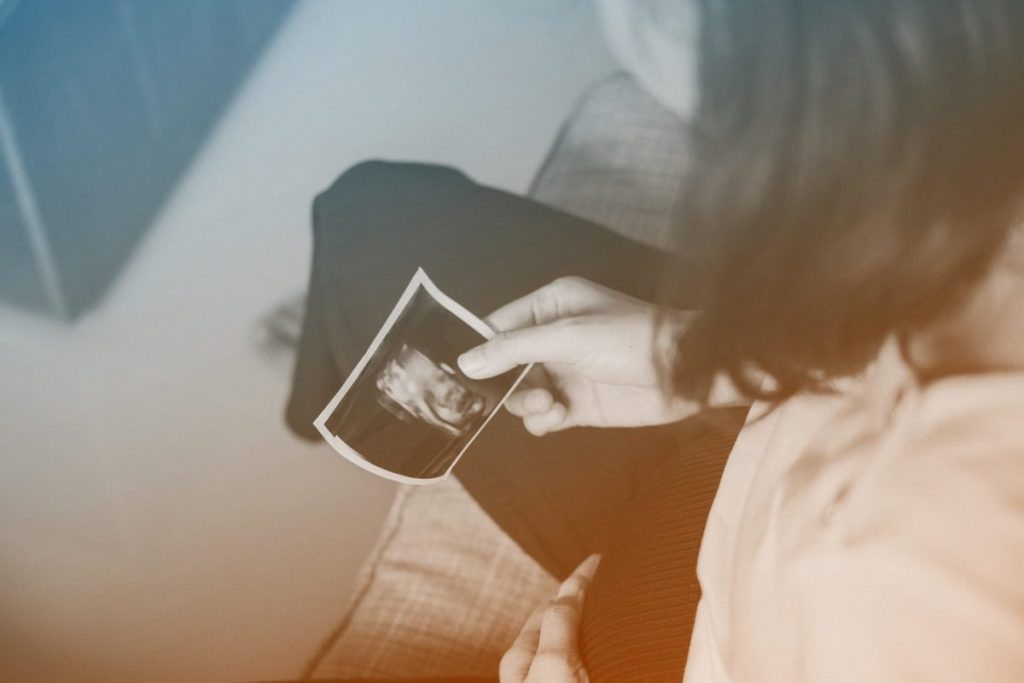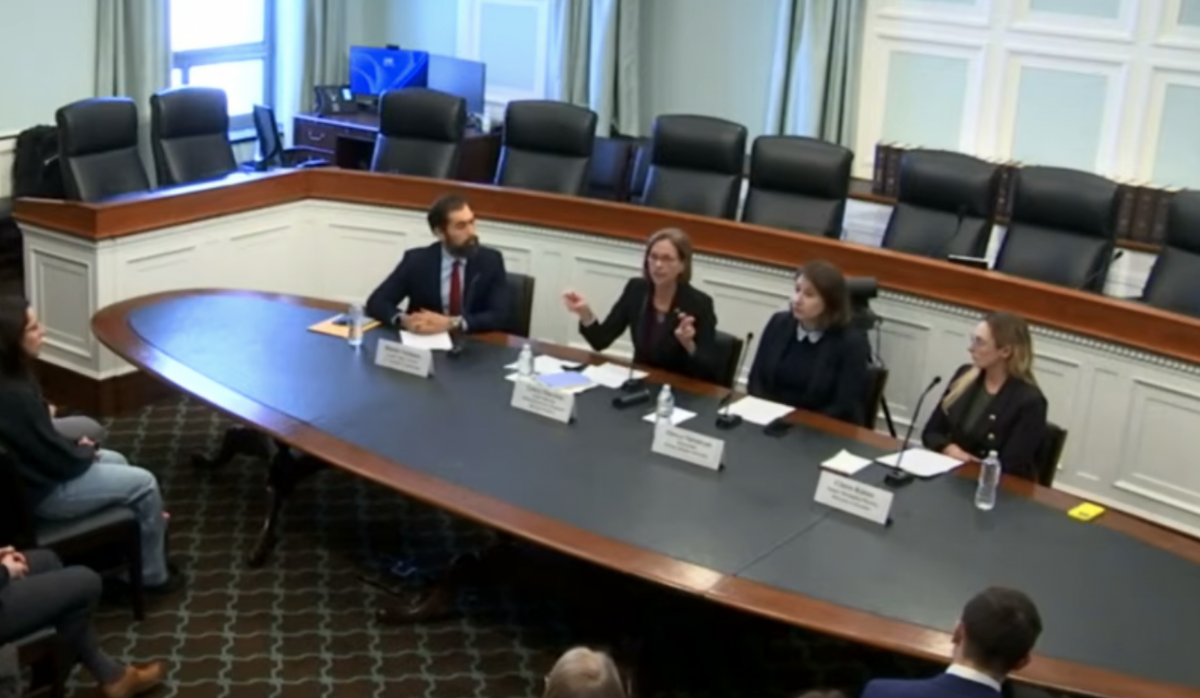“Don’t cry – you can get pregnant again” - Georgian women on miscarriage
Miscarriage and stillbirth are uncommon topics in society n Georgia.
“Next time”, “You’re still young”, “Forget about it, you have your whole life ahead of you” – these are the phrases many use to comfort women who have lost their children.
But for most of them, hearing these words is more akin to torture. They do not want to forget the beating of a tiny heart in their womb, which only they can hear. They don’t want to talk about that pain that won’t go away, either.
One in five pregnancies ends in miscarriage. How do women who have lost their children feel about it? Who helps them in Georgia?
“I knew it was a boy”
Nata was woken up at 8:00 in the morning by a sharp pain. She had been pregnant for five months. She had an appointment for an ultrasound to check the baby’s heart functioning in two hours.
But the pain kept getting worse. Full of worry for her baby, Nata decided to call the doctor.
But it was too late. A moment later she was holding her stillborn child in her hands.
“He fit in my hands. His skin was almost transparent. I remember the shape of his eyes so clearly. And when I close my eyes, I can still see him, like he’s still there”.
This was Nata’s second pregnancy. She gave birth to her first child at the age of 17. Because of the large gap between pregnancies, the doctors treated it like a first pregnancy.
Nata took special care to follow all of the doctors’ recommendations to the letter every day. She ate healthily, took walks, rested a lot, read books, and listened to soothing music.

“I was always talking to my baby in my head. For some reason, I was sure that he would be a boy. The ultrasound showed a girl, but I didn’t believe it. Not because I didn’t want a girl, but I was just certain that I had a boy.
When it all happened, they took me to the hospital, put me under, and did all the necessary tests and procedures. When I came to, the first thing I asked about was whether my baby was a boy or a girl. Turns out it was really a boy”.
The cause was a microthrombus arising from placental infarction. She should have been taking blood thinners every day, but no one had even considered the possibility before it happened.
But she couldn’t blame anyone for that. Even though her partner supported her and was constantly by her side, she felt like it was happening only to her, that there was no one else. She began to get irritated.
“Everything annoyed me. My house, my bath, my bedroom. I felt like everyone had abandoned me”, she said.
To overcome this, Nata needed the help of neurologist and a year-long course of treatment.
«A 1.5 kilogram child wasn’t worth getting worked up, and that I would have a lot more kids»
On average, 10 to 20% of all pregnancies in Georgia are unsuccessful.
According to data from the National Centre for Disease Control and Public Health of Georgia, from 2015 to 2018 there were 45,587 miscarriages, with the most, 22,733, occurring in 2018.
The statistics do not include data on miscarriages which happened in the first 12 weeks of pregnancy, when the woman has not yet realized that she is pregnant and so has not gone to see a doctor.
There is no psychological or physical rehabilitation program in Georgia for women who have experienced a miscarriage. However, every year, more and more women are seeking help from psychologists and neurologists.
Miscarriages arise from such issues as congenital disorders, viral infections, thrombophilia, organ defects, hormonal imbalances, and stress.
It is not acceptable to talk openly about miscarriages in Georgian society.

Many woman express their dissatisfaction with what they feel to be a lack of support from their families and friends after an unsuccessful pregnancy.
“I was pregnant for seven months when I had a miscarriage. That was a tragedy for me. But even worse was the reaction I got from everyone around me”, said Khatia, 34.
It was not Khatia’s first pregnancy. She had already chosen a name for the child. Luka. Even to this day she can’t remember what happened.
“I didn’t leave my room for three months. Everybody thought I was overreacting. A relative of mine said that there was no need to get so worked up about a 1.5-kilogram baby, that I was still young, that I would have another one. I will never forget what she said.
They don’t even let you grieve over your lost child. They just don’t know how to help people when that happens in Georgia, so they say really stupid things. Or they go the complete opposite way and try to protect you too much.
I remember once, after the miscarriage, a friend of mine give birth with no problem. She organised the baptism in secret, so I wouldn’t find out about it. My friends didn’t even post about it on Facebook. I just happened to learn about it anyway.
They had decided that I couldn’t handle it without getting upset. But really it was just the opposite! I would have been so happy for my friend. But that just made me feel abandoned, left to face my grief alone”.
Elene got married at 17. At that time she knew nothing about pregnancy, childbirth, or babies. She went to have a standard ultrasound at six months of pregnancy. The doctor ordered an abortion. The baby was already dead.
“They pumped me full of drugs to induce labour The worst part was the waiting. Three whole day. It was the worst time of my entire life”.
After that she had three perfectly healthy children. But Elene says that she still remembers her unnamed child.
“Even though everyone around me was very supportive, I still couldn’t get over the feeling of being all alone. When a child is born everyone is happy, but I was left only with pain”, she recalls.
Unrecognised mourning
The topic of miscarriage is taboo not only in Georgia, but also in more “freethinking” countries.
Michelle Obama’s book, in which the former first lady of the USA recalls her own miscarriage, led to serious discussions in the West about whether women should talk openly about such topics.
Michelle Obama admitted for the first time in her book, Becoming, that she had lost a child before the birth of her daughter.
“I felt lost and alone and I felt like I failed, because I didn’t know how common miscarriages were, because we don’t talk about them. We sit in our own pain. I think it’s the worst thing that we do to each other as women, not share the truth about our bodies and how they work”, said Michelle Obama in an interview with the television company ABC.
There has long been a discussion in Western media about why women, who have taken a visible role in all areas of public life, have remained silent on miscarriage and the loss of children.

«It is a bitter irony that millions of women experience unsuccessful pregnancies, but nobody talks about it in public. Women end up feeling some kind of guilt their whole life. And then they just learn to live with that feeling», writes the British newspaper Telegraph.
The situation is even more difficult in Georgia, where women and their partners often know very little about reproductive health.
Very few women in Georgia seek psychological help after an unsuccessful pregnancy. People do not consider such pregnancies to be a great tragedy, and they often blame the women themselves.
The psychotherapist Sofo Tabagua says that women often enter a “period of mourning” in these instances, but there is no support forthcoming for them.
“People turn a blind eye to this mourning, or try to give “advice”, which is often sarcastic. So women can’t go through all the stages of grief, and end up stuck with feelings of guilt or fear or hopelessness”.
According to the president of the Georgian Obstetricians and Gynaecologists Association, Madona Jugeli, after an unsuccessful pregnancy, women experience hormonal changes which complicates their recovery and has an effect on their mental and physical health.
“When a woman is pregnant, her body prepares for nine months of coexistence with a fetus and coping with the pressures of sustaining two separate beings. So, when this process is suddenly interrupted, negative processes can start to happen in the body.
I always strongly recommend my patients to see a specialist. Unfortunately, only about one in ten of them take my advice”, says Jugeli.
Perinatal psychotherapist, Nata Tumanishvili, says that there are no records, research, nor analysis of miscarriages in Georgia.
“Unsuccessful pregnancies are blamed on physiological factors. But it’s very important to know which factors existed before a miscarriage. For many women this is an unbearable tragedy, and they withdraw into themselves, leading to other problems which may be confused for causes later”.
In addition to stress, women begin to feel guilt. They start believing that the problem is in their own body, and they want to hide it.
According to the director of the organisation Hera XXI, Nino Tsuleiskiri, there is a widespread stereotype that reproduction depends entirely on women.
“That’s why it’s very important that men are equal partners in the process. You can’t treat the women unless you’re treating the men too. That’s why it’s important for partners to plan the pregnancy, to avoid unwanted complications”.
Madona Jugeli, whose medical practice has seen its share of unsuccessful pregnancies, says that responsibility for miscarriages is often laid on women, as well as responsibility for infertility.
“Women in Georgia are victims of all sorts of violence, including psychological. They say ‘I was running, so I had a miscarriage”, or “I didn’t clean right, so…”.
The problem is always the woman, when she doesn’t have children, and never the man. I always ask that childless couples come to the examination together, but the men usually don’t come”.
The Miscarriage Association of Britain states on its website that the cause of a miscarriage is very rarely the woman herself. Doctors advise women not to hold their pain inside, in silence, but to speak to someone close to them if they feel they need to talk about it.
Psychologist say that the information vacuum has an effect not only on women, but on their partners and on society as a whole, since they don’t know what sort of reaction to have to the news of an unsuccessful pregnancy, or how to show empathy with what they say.
After Michelle Obama’s book was published, a discussion began in the USA about whether information about miscarriages should be taught to children during sex education classes.

This project is funded through the Democracy Commission Small Grants Program, U.S. Embassy Tbilisi. The contents of this publication are those of the Author(s) and do not necessarily represent the views of the Department of State.


















